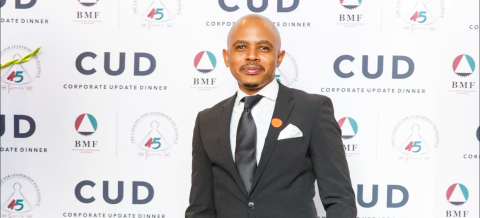Financial Mail Women
CEO’s Should Lead By Example
President Cyril Ramaphosa, as the CEO of South Africa Inc., has thrown down the gauntlet to leaders in the corporate sector during this current crisis. This includes his announcement that government leadership – including cabinet and premiers – would take a voluntary one-third cut in their salaries for three months and contribute this money to the Solidary Fund set up by the president to help small- to medium-sized businesses during this difficult period. Several CEOs of large corporations immediately announced that they would do the same or something similar.
Leading with empathy
Dr Leila Fourie, CEO of the JSE, feels that CEOs need to lead with empathy, as demonstrated by the president and others who have taken pay cuts. “You have to be decisive; the big decisions will always be yours. You have to chart a course between catastrophe and complacency, while being able to triage: prioritising tasks and attending to the most urgent. You have to understand and manage your own fears so that you can manage your team’s fears – and those of your clients. And you have to communicate more, not less. “You have to be courageous yet aware of your own vulnerabilities; strong enough to realise that you don’t have the answers, but that you must act to the best of your experience and judgment, able to quickly recognise your mistakes, own up and move on in another direction if the situation demands it, because the truth is that there is no coronavirus pandemic playbook. But lives are literally at stake.”
A balancing act
Faith Khanyile, the CEO of WDB Investment Holdings, feels that these challenging times call for CEOs who are “resilient, calm and level-headed”. “We need CEOs that can balance the needs of the now with future opportunities and are able to communicate effectively with a broad range of complex stakeholders. “CEOs must be able to take the necessary short-term actions to stabilise the business while at the same time inspiring their teams to see beyond the crisis for opportunities once the crisis is over. This balance requires innovation and some level of being a hustler. “The CEO cannot tell the staff, suppliers and others to make sacrifices if they don’t make sacrifices themselves. You cannot inspire your team to be innovative and to look for opportunities in the crisis if you don’t embody these qualities as the CEO.”
Trust is imperative
Mamokete Ramathe, CEO of Mamor Capital, believes that true leadership gets tested during a crisis. “When fundamentals are in place and there’s already a high trust relationship between leaders and employees, companies are most likely to navigate the crisis better than in a low trust environment. That ‘unity of mind’ is key to creating a stable environment and getting everyone to contribute towards a set direction. “People look up to leadership for direction during times of uncertainty, such as what the world is going through now. It is important that leaders leverage four important tools to navigate through a crisis: effective communication, empathy, collaboration and direction. “They should communicate with clarity to avert speculation and clear out any misconceptions about the position taken by the organisation. “They should acknowledge that employees could be confused and afraid about the impact this crisis has on their personal lives. “Leadership must create an environment conducive to leveraging expertise from others and sourcing their inputs within the organisation, to achieve the desired outcomes. “Leaders who are good at scenario planning will inspire a sense of direction and action by clearly communicating key priorities during a crisis to ensure the survival and stability of the organisation.”






 Sign-up and receive the Business Media MAGS newsletter OR SA Mining newsletter straight to your inbox.
Sign-up and receive the Business Media MAGS newsletter OR SA Mining newsletter straight to your inbox.